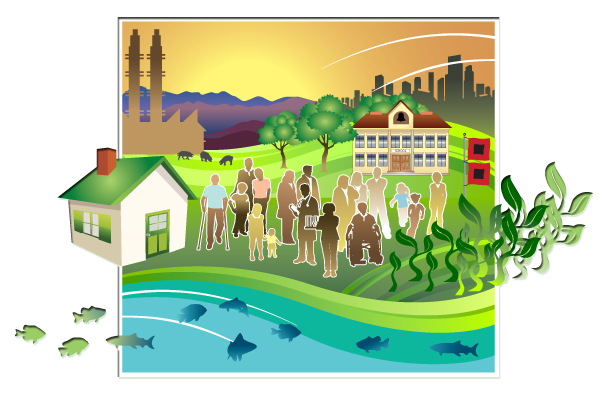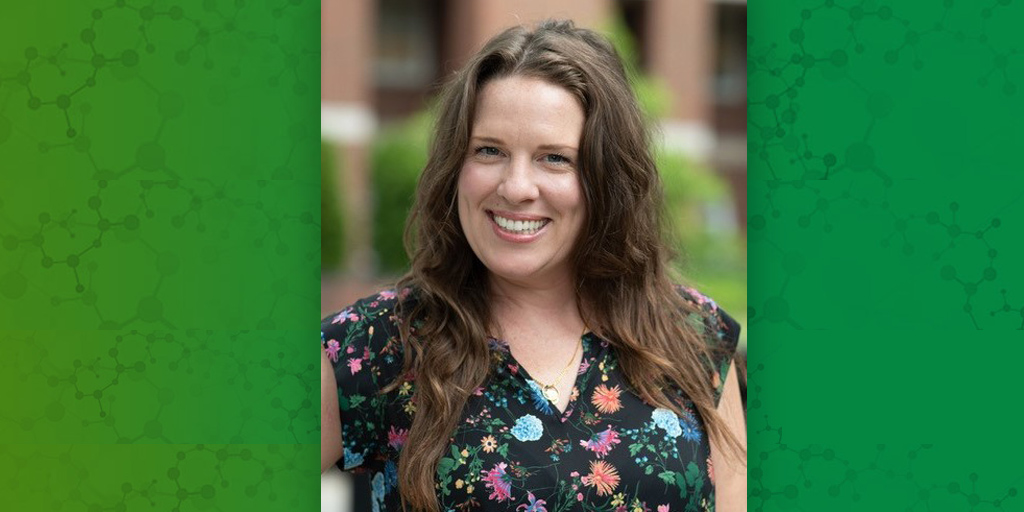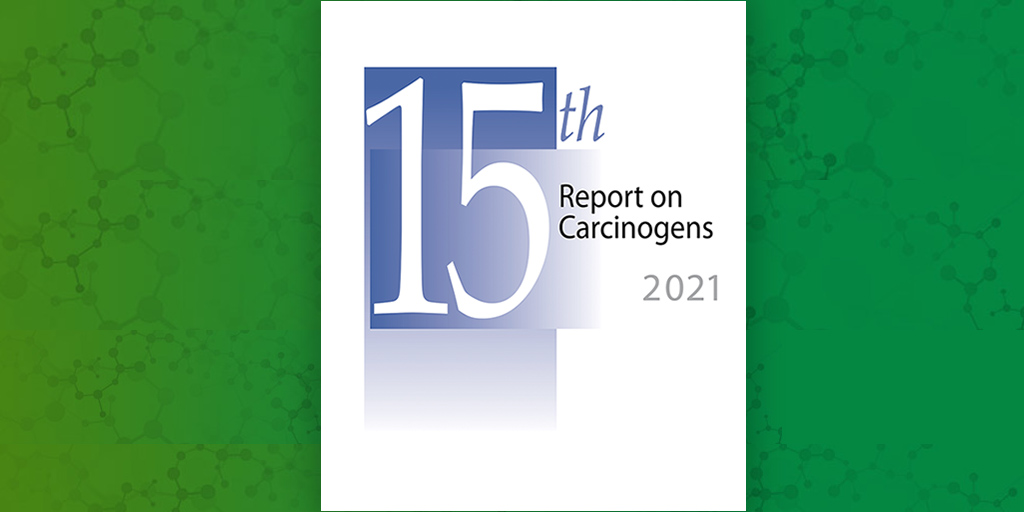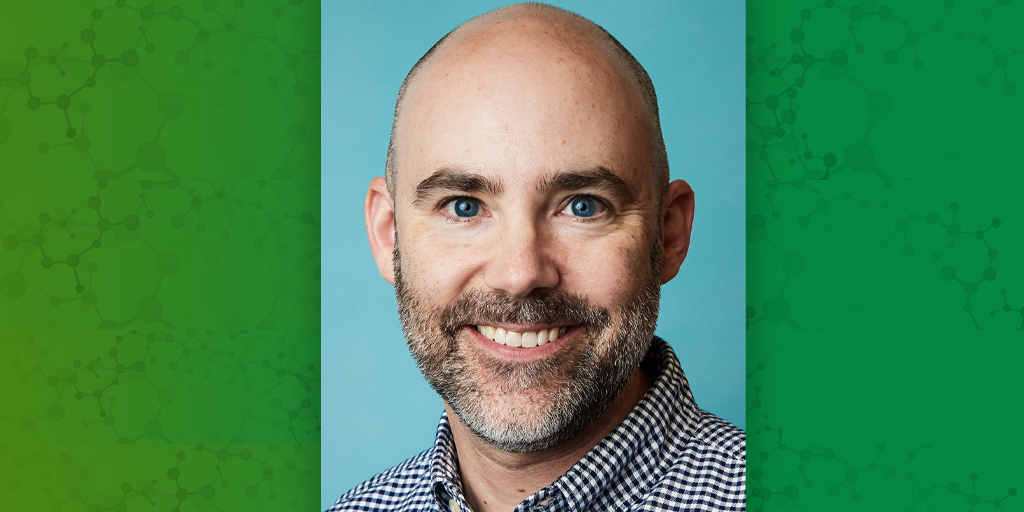Hands-on Course Prepares Community Members and Researchers to Conduct Effective Community-based Participatory Research
A curriculum that incorporates community-based participatory research (CBPR) principles into hands-on training prepares teams of academic and community partners to address health inequities. The Detroit Urban Research Center, a longstanding CBPR partnership between the University of Michigan and community organizations that addresses health inequities in Detroit, developed the Community-based Participatory Research Partnership Academy to increase the capacity of academic and community partners to conduct CBPR. The yearlong program is available to applicants nationwide.
“We wanted to ensure our curriculum put CBPR principles into action so that participants new to this area could get a feel for CBPR, learn in an equitable manner, and build partnerships”, stated Chris Coombe, Ph.D., who co-leads the CBPR Partnership Academy with Barbara Israel, Dr.P.H.
The program begins with a one-week intensive course during which pairs of researchers and community partners participate in hands-on learning experiences. The course is the foundation of the yearlong program that also includes mentoring, a partnership development and project grant, and ongoing learning forums among participants to deepen and apply learning. Participants shared their accomplishments at the CBPR Partnership Academy Symposium in 2019. Many partnerships have been successful in a number of areas, including:
- Conducting workshops on CBPR with local community organizations and academic researchers.
- Dissemination of research findings to community and policy audiences.
- Obtaining additional funding to conduct CBPR projects aimed at addressing community-identified health inequities.
A recent paper, co-authored by the Detroit Urban Research Center’s community and academic partners, described how the novel curriculum promotes equitable partnerships between researchers and community members.
Incorporating CBPR Into an Active Learning Model
The week-long, in-person course teaches participants how to develop partnerships and to apply a CBPR approach to all aspects of research, including data collection and analysis, design, ethics, and evaluation. It also teaches how to communicate findings back to the community. During the week, participants visit Detroit community-based partner organizations with a history of CBPR efforts that address issues such as environmental justice, housing and equitable development, and youth engagement. For example, at the Detroit Hispanic Development Corporation, participants saw opportunities for youth involvement in robotics, digital music production, arts, and community organizing, while also learning about research and action to address air pollution from local industries.
Participants saw how these organizations serve as centers of community resilience, strength, and power, and learned how they lead CBPR efforts to collaboratively address local health issues. Through these experiences, participants were better able to understand how to address health inequities in their own communities through CBPR.
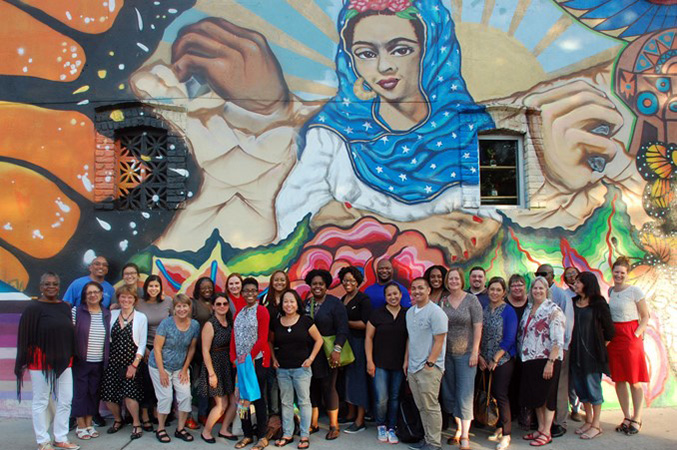
Participants are shown during the site visit to Detroit. (Photo courtesy of Chris Coombe)
To develop the curriculum for the weeklong training, the Detroit Urban Research Center adapted an established experiential learning model. Trainees found the learning meaningful as they were able to apply knowledge in real time to practical situations, make decisions, and reflect on them.
Community and academic instructors expanded existing principles of the experiential learning model by adding two CBPR principles:
- Diversity among participants and program faculty promotes collaboration and equity.
- Learning is enhanced by collaborative co-learning, during which participants learn with and from each other, which builds partnerships.
Active learning, co-learning, and relationship-building were promoted through interactive methods and activities such as practice applying a CBPR approach to surveys, focus groups, case studies, and analysis.
Principles of equity and diversity were key pieces of the curriculum. Modeling equity, all sessions were co-taught by community-academic instructor pairs. Diversity was reflected in the demographics and backgrounds of the instructors and participants. Over half of all instructors and two-thirds of participants were Black, Indigenous, and people of color, and a majority were women.
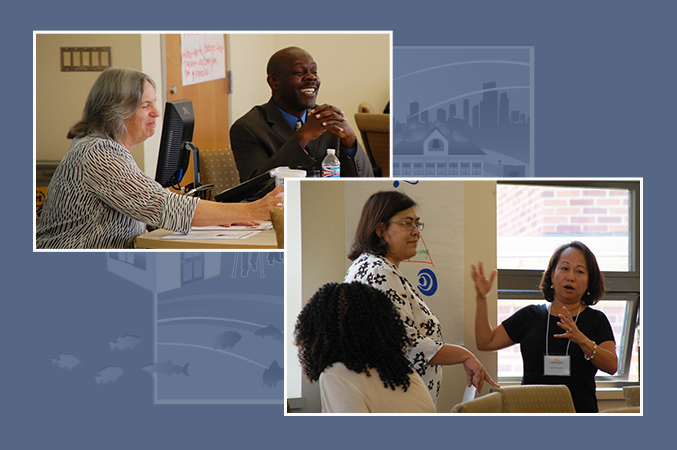
On the top-left, course instructors Barbara Israel, Dr.P.H., and Zachary Rowe, Executive Director of Friends of Parkside, lead discussions. On the bottom-right, a participant pair takes part in an activity defining their new partnership. (Photos courtesy of Chris Coombe)
Community Members and Academic Researchers Learn Together
The week-long course, described in the research paper, was attended by 12 pairs of academic and community partners, facilitating co-learning where individuals learn together and from each other, which is key to CBPR. The paired trainees applied to the program together with the intention of leading CBPR in their communities, so developing the partnership between the participant pairs was a critical component of the course and subsequent yearlong activities.
“The Partnership Academy strongly emphasizes co-learning between community and academic partners because sharing knowledge and expertise of all partners is central to CBPR”, stated Zachary Rowe, founding Board member of the Detroit Urban Research Center. “Power sharing is facilitated by learning with and from each other and this promotes respect, trust, and an equitable relationship. Applying what they learn in the program helps lay the foundation for strong effective CBPR partnerships in their own communities.”
The pairs worked together and with other participants to facilitate relationship building and shared learning across the cohort.
Hands-on Learning Builds CBPR Knowledge
The Detroit Urban Research Center conducted an evaluation of the weeklong training course to determine whether it increased participants’ capacity to conduct CBPR. The evaluators also examined what participants thought about course material and the quality of instruction.
Participants highly rated their ability to understand core CBPR competencies such as the phases and principles of CBPR, quantitative and qualitative methods, ethical considerations, and forming and evaluating partnerships. Participants also indicated that the most beneficial parts of the course were the instructors’ knowledge and modeling of CBPR, the site visit to Detroit, and the ability to build relationships within their pairs and cohorts. The evaluators also used the results to further refine the course.
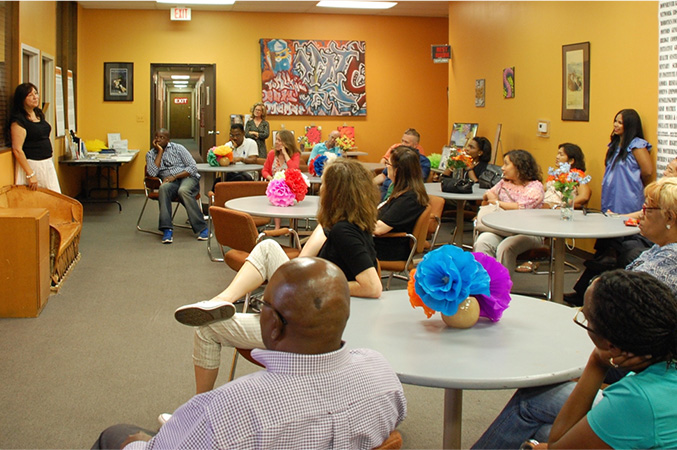
Participants learn from Angela Reyes of the Detroit Hispanic Development Corporation during the site visit to Detroit. (Photo courtesy of Chris Coombe)
As one participant said about the site visit, “The trip to Detroit was the highlight of the week. The community partners are doing the work they are doing not because of the academic partners, but in concert with the academic partners, and that makes all the difference.”
“Overall, we saw that participants felt they were better able to understand CBPR core concepts and use this knowledge in their own work”, added Coombe. “Participants built equitable partnerships that they can carry forward into work in their own communities, addressing health inequities through CBPR.”
With funding from NIEHS, the Detroit Urban Research Center is currently selecting the fifth cohort of community-academic partners to begin in June 2022 (application period is closed).
New Curated Developmental Toxicology Collection
The journal Environmental Health Perspectives released a new collection in the fall focused on developmental toxicology. The field of developmental toxicology investigates adverse developmental outcomes in chemically exposed animals and cell models. Such findings are often extended to human health via the Developmental Origins of Health and Disease paradigm by researchers who evaluate how environmental factors encountered during pregnancy and early postnatal life influence the risk of developing diseases later in life. The collection showcases a sampling of groundbreaking developmental toxicology research and related research published by the journal over the past decade. The papers encompass studies of a variety of substances in several model systems affecting the nervous, endocrine, reproductive, cardiovascular, and immune systems, as well as fetal growth and metabolism. Collectively, the research papers — along with a selection of high-impact reviews and Focus articles — illustrate that environmental exposures experienced early in life, often in the womb, can manifest in adverse outcomes that are not evident for many years, and that in some instances, transcend generations.
New Report on Carcinogens Released
The Department of Health and Human Services released its 15th Report on Carcinogens in December. The cumulative report is a congressionally-mandated, science-based public health document prepared by the National Toxicology Program (NTP). It now includes 256 listings of substances, including chemicals, infectious agents, and physical agents, such as X-rays, that are known or reasonably expected to cause cancer in humans. Eight new substances were added to the report: chronic infection with the bacterium Helicobacter pylori which can cause gastritis and peptic ulcers, the flame-retardant chemical antimony trioxide, and six chemicals that are byproducts of water disinfection. The report does not include estimates of cancer risk because risk depends on many individual factors, such as the potency of the carcinogen, the level and duration of exposure, and a person’s individual susceptibility to the carcinogenic action of the substance. Read the Report on Carcinogens factsheet.
World Health Organization Framework Can Help Improve Decision-making Around Chemical Risk Assessment
The World Health Organization (WHO) released a a framework for the use of systematic review in chemical risk assessment in November. Systematic reviews attempt to answer a specific research question by identifying and synthesizing all empirical evidence that meets pre-specified eligibility criteria, which are developed to reduce bias and error and maximize transparency. In the context of chemical risk assessment, systematic review approaches can improve decision-making in situations in which there is conflicting evidence or significant uncertainty. The WHO framework provides guidance to chemical risk assessors unfamiliar with systematic approaches and is not prescriptive. Rather, it describes the overall process and important components of a systematic review and how such approaches can be used in the chemical risk assessment process to increase rigor and transparency. The framework covers topics such as the importance of systematic review and evidence integration, appraisal of individual studies, and important considerations for searching, selection, and extracting information.
Chronic Exposure to Air Pollution May Worsen COVID-19 Outcomes
Hospitalized COVID-19 patients in New York City who had been chronically exposed to air pollution had increased risk of admission to the intensive care unit and death compared to hospitalized COVID-19 patients without such exposure, according to a December 2021 study funded in part by NIEHS. The study authors estimated the annual average fine particulate matter (PM2.5), nitrogen dioxide, and black carbon concentrations at patients’ residential addresses. Using statistical modeling, they then showed that higher long-term exposure to PM2.5, even at levels below current regulatory thresholds, was associated with worse COVID-19 outcomes among hospitalized patients, but that neither nitrogen dioxide nor black carbon exposure was associated with COVID-19-related mortality, intensive care unit admission, or intubation. This study adds to the developing understanding of how environmental factors increase the risks of COVID-19.
New Tools Help Communities Plan for Natural Disasters
Two new tools released in fall 2021 can help communities and state and local emergency planners better prepare for and respond to natural disasters.
The Environmental Protection Agency (EPA) developed the Environmental Resilience Tool Wizard, a website that pulls all the agency’s tools and resources about increasing community resilience into one user-friendly place. It is designed to be used by state, local, and Tribal emergency managers and health agencies addressing environmental concerns and disaster resilience. Information within the tool spans a variety of topics such as air quality, climate change, contaminated sites, environmental justice, and green infrastructure and is presented in various formats such as case studies, fact sheets, guidance documents, and reports.
The National Oceanic and Atmospheric Administration’s National Centers for Environmental Information released a mapping tool that provides county-level information on natural disaster hazards across the country. The county-level data improves on the state-level tools previously available on the Billion-dollar Weather and Climate Disasters webpage. Drawing on data from the National Risk Index, the Social Vulnerability Index, and the Climate Impact Lab, the new risk assessment tool provides detailed information on a location’s susceptibility to weather and climate hazards that may result in high cost disasters, such as wildfires and droughts. It also provides information on the potential impacts across several socioeconomic metrics from these hazards.
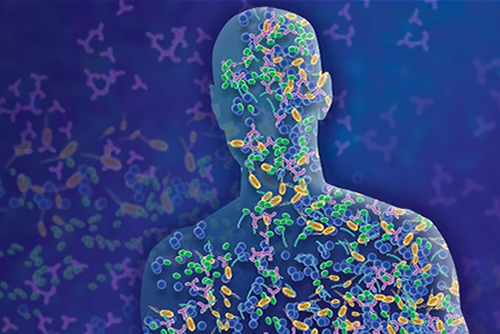
PEPH Environmental Health Chat Podcast Series
Parkinson’s Disease, Pesticides, and the Gut Microbiome
PEPH Environmental Health Chat Podcast Series
Parkinson’s Disease, Pesticides, and the Gut Microbiome
Microbes in the human gut, collectively referred to as the gut microbiome, break down and metabolize food and chemicals from a person’s environment. Some compounds released by the gut microbiome can enter the brain, where they may have either positive or negative effects on health. Research has shown that the gut microbiome in people with Parkinson’s disease differs from that in people without the disease. In our latest podcast, Beate Ritz, M.D., Ph.D., an environmental epidemiologist, discusses how the environment, gut microbiome, and brain influence the development of Parkinson’s disease. Funded by NIEHS, she currently studies how pesticides and genes interact to increase susceptibility to Parkinson’s disease in rural populations and how pesticide exposure affects the gut microbiome.
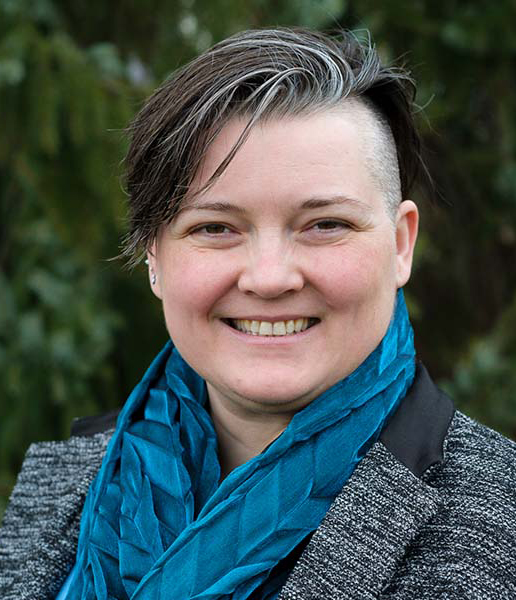
PEPH Grantee Highlight
Jennifer Carrera, Ph.D.
Jennifer Carrera, Ph.D., a sociologist with engineering expertise, works with underserved communities to address environmental health inequities. Through a sociological lens, Carrera studies factors, including environmental racism, that reduce access to water and sanitation infrastructure. Using her engineering skills, Carrera works with communities to find solutions to these problems. Her recent work in Flint, Michigan, focuses on collaborating with residents to address the public health challenges associated with the contaminated water supply.
Funding Opportunities
Virtual Consortium for Translational/Transdisciplinary Environmental Research (ViCTER) (R01 Clinical Trial Optional)
Fosters and promotes early-stage multi-disciplinary collaborations and/or translational research efforts among fundamental (technology and mechanism oriented), clinical (patient-oriented) and population-based researchers in the environmental health field. The collaborative teams will come together in common interest to investigate potential linkages between human health and one or more environmental stressor(s). The ViCTER program is intended to support innovative high-risk, high-reward cross-disciplinary and/or translational research projects that are more difficult to achieve in a typical R01 application. Collaboration among investigators at different institutions through a virtual consortium arrangement are encouraged.
Deadline: December 1, 2020
Letter of Intent: Due 30 days prior to the application due date
Measures and Methods to Advance Research on Minority Health and Health Disparities-related Constructs (R01 Clinical Trial Not Allowed)
Supports research to improve the measures and methods for complex social constructs that capture the lived experience of populations that experience health disparities. The NIH-designated U.S. populations with health disparities are racial and ethnic minority groups, sexual and gender minority groups, underserved rural populations, and socioeconomically disadvantaged populations of any race or ethnicity. The objective of this initiative is to produce knowledge that can inform the field about the types of measurement approaches that may be most suitable for different health disparities-related research questions or specific populations, settings, or contexts. Projects are expected to examine the performance and utility of specific measurement and/or methodological approaches. NIEHS seeks applications that advance innovative development of new measures and methods, or validation and adaptation of existing measures and approaches, to address the complex interplay of the physical, chemical, cultural, social, and built environmental factors that contribute to or exacerbate environmental health disparities.
Deadlines: February 5, 2022; February 5, 2023; February 5, 2024
Notice of Special Interest (NOSI): Epidemiologic Studies in Asian Americans, Native Hawaiians, and Pacific Islanders (Parent R01 Clinical Trial Not Allowed)
Encourages fundamental epidemiological research geared toward understanding the inter-relationships of biological, lifestyle/behavioral, environmental, and sociocultural factors and how these factors may impact health disparities and outcomes in Asian American, Native Hawaiian, and Pacific Islander subpopulations. Epidemiological inference is enhanced with variation in study designs; therefore, investigators may leverage a range of design methods in response to this NOSI, including electronic health record databases, registries, cohort studies, and cross-sectional surveys. Applications may propose leveraging existing studies or data, or may propose new data collection. To be considered responsive to this NOSI, applicants must propose to study at least one specific subpopulation of Asian Americans, Native Hawaiians, and Pacific Islanders. NIEHS applications to this funding opportunity occur through Research Project Grant (Parent R01 Clinical Trial Not Allowed), Addressing the Etiology of Health Disparities and Health Advantages Among Immigrant Populations (R01 Clinical Trial Not Allowed), and The Role of Work in Health Disparities in the U.S. (R01 Clinical Trials Optional).
Deadlines: February 5, 2022; June 5, 2022
Pediatric Immune System – Ontogeny and Development (INTEND) (R01 Clinical Trial Not Allowed)
Supports research which correlates immune system in general and development patterns in particular, between two or more age groups - neonates, infants, and children and adolescents to understand the evolution or immune ontogeny in human immune system development focusing on either or both, innate and adaptive immune systems with additional focus on internal factors like the microbiome and/or external factors like the environment.
Deadlines: October 5, 2021; February 5, 2022
The Role of Work in Health Disparities in the U.S. (R01 Clinical Trials Optional)
Supports innovative population-based research that can contribute to identifying and characterizing pathways and mechanisms through which work or occupation influences health outcomes and health status among populations with health and/or health care disparities, and how work functions as a social determinant of health. Of particular interest are projects designed to examine pathways and mechanisms using conceptual models grounded in minority health and health disparities theories that recognize that health disparities arise by multiple and overlapping contributing factors acting at multiple levels of influence. Studies must examine NIH-designated U.S. health disparities populations. NIEHS is interested in applications that focus on the intersection of work as a social determinant of health, the physical environment (that includes exposures to toxicants), and other social determinants of health in creating or intensifying environmental health disparities at the population level. Community engaged research approaches are strongly encouraged as well as applications that move the science of environmental health disparities towards achieving environmental justice for affected populations.
Deadline: October 5, 2021; February 5, 2022
Notice of Special Interest (NOSI): KC Donnelly Externship (Admin Supp Clinical Trial Not Allowed)
Provides current Superfund Research Program (SRP)-funded graduate students and post-doctoral researchers with translational/transdisciplinary opportunities and experiences within other SRP-funded, government laboratories, or other agencies (state, local, Tribal). Applicants are strongly encouraged to notify the program contact at NIEHS one month before submission due date of this funding announcement in order to facilitate efficient processing of the request.
Deadlines: February 28, 2022; February 28, 2023; February 28, 2024
Clinical Relevance of the Linkage Between Environmental Toxicant Exposures and Alzheimer’s Disease and Related Dementias (R01 Clinical Trial Not Allowed)
Supports mechanistic and early translational research focused on a more rigorous in-depth examination of the potential interactions of environmental toxins with genetic and non-genetic molecular targets known to influence Alzheimer's disease and Alzheimer's disease-related dementias. Anticipated outcomes include an improved understanding of neurological mechanisms of chemical toxicities related to Alzheimer’s disease and Alzheimer’s disease-related dementias, more evidence-based potential biomarkers of exposure and toxicity for those most at risk, as well as more data to support causality and potential approaches for mitigation.
Deadline: March 11, 2022
Letter of Intent: Due 30 days prior to application due date
Environmental Literacy Program: Increasing Community Resilience to Extreme Weather and Climate Change (NOAA Cooperative Agreement)
Supports projects that develop the collective environmental literacy necessary for communities to take actions that build resilience to extreme weather and climate change in ways that contribute to community health, social cohesion, and socio-economic equity. This funding opportunity is soliciting two types of projects through separate competitive priorities. Priority 1 awards are intended to fund new projects located in Central and Eastern Regions of the United States. Note that pre-applications are required for Priority 1 applications. Only those institutions that receive authorization from NOAA are eligible to submit a full application. Priority 2 awards will support the evolution of projects funded under the 2015-2018 funding opportunities from this program. Projects should demonstrate how they will engage children, youth, and/or adults to build these capabilities, particularly through active and social learning, during the award period. Projects should leverage and incorporate relevant state and local resilience plans and collaborate with individuals and institutions that participate in efforts to develop or implement those plans. Projects should support diversity, equity, inclusion, and climate justice in all aspects of the project.
Deadline: March 17, 2022
Notice of Special Interest (NOSI): Administrative Supplement for Research and Capacity Building Efforts Related to Bioethical Issues (Admin Supp Clinical Trial Optional)
Supports 1) research on bioethical issues to develop or support the development of an evidence base that may inform future policy directions, and/or 2) certain efforts to develop or augment bioethics research capacity. Applicants may propose to supplement parent awards focused on bioethics or to address a component related to bioethics in a biomedical research study. Note that applications must be within the general scope of the parent award. Areas of interest include but are not limited to issues related to the inclusion of Tribal members and American Indian/Alaska Native populations in biomedical research, issues related to health disparities and health inequity, and post-study obligations such as accessing and sharing benefits of research. NIEHS is interested in bioethics applications that address topics relevant to its mission and research priorities as provided in its strategic plan. Applications for this funding opportunity occur through Administrative Supplements to Existing NIH Grants and Cooperative Agreements (Parent Admin Supp Clinical Trial Optional).
Deadline: March 17, 2022
Environmental Justice Video Challenge for Students
The EPA and partners have launched the Environmental Justice Video Challenge for Students to enhance communities’ capacity to address environmental and public health inequities. The goals of the challenge are to 1) inspire students at accredited colleges and universities in the U.S. and its territories to work directly with communities in the identification and characterization of environmental justice challenges using data and publicly available tools, and 2) help communities (including residents and other stakeholders) address environmental justice challenges and/or vulnerabilities to environmental and public health hazards using data and publicly available tools. There are two phases for the challenge. In Phase 1, students will create a video to demonstrate innovative approaches to identify and characterize an environmental justice issue(s) in a select community using data and publicly available tools. Students are strongly encouraged to work in teams and identify and collaborate with community organizations that may bring important understanding and perspective to the environmental justice challenge(s) the community is facing. In Phase 2, students will develop a video to display how they used data and publicly available tools to identify strategies and opportunities to address an identified environmental justice issue(s) and worked with a community-based organization(s) to inform strategies for intervention and/or facilitated effective community engagement and advocacy on the environmental justice issues. Phase 1 of the challenge is currently open. Details on Phase 2 will be posted at a future date. Registration for an informational webinar is now open.
Deadline (Phase 1): April 1, 2022




